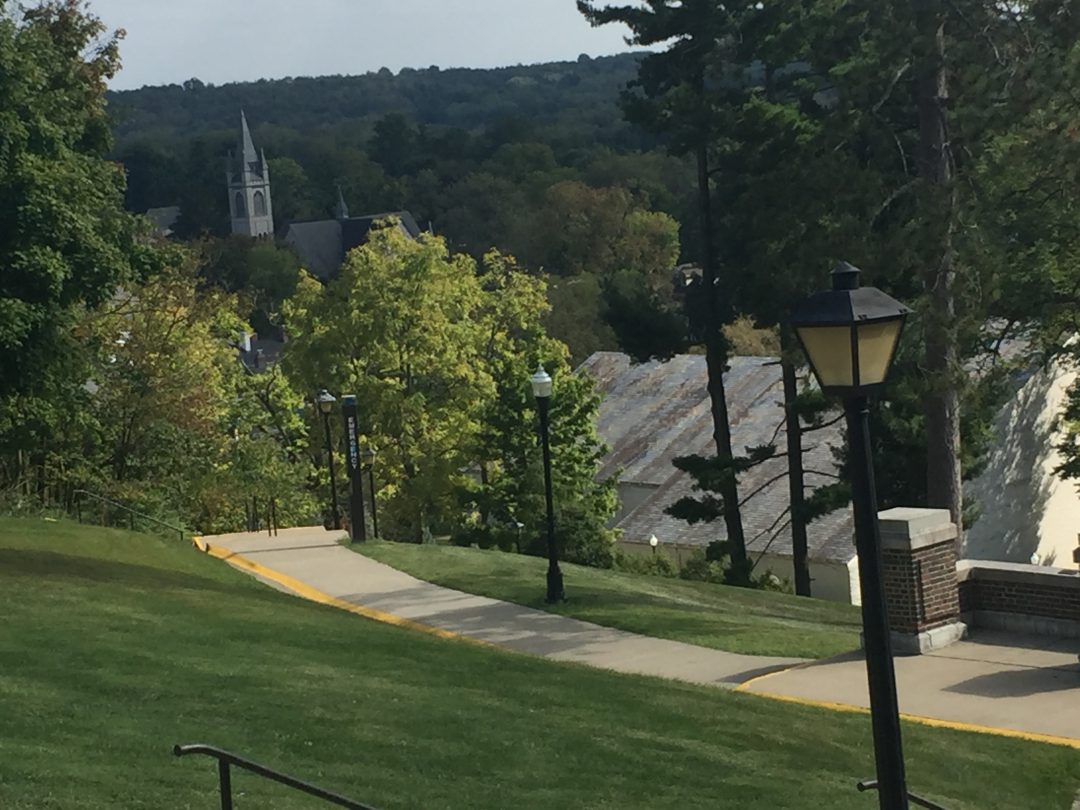It’s April and in the U.S. for college-bound high school seniors it’s decision time. I wrote about this a little bit in my book, but I think it might be helpful to cover it here.
First of all, if you got into your one true love school at a price your family can afford, congratulations! For students with a clear vision, I did a post last year on planning out your college career. However, in my experience, many seniors and their families are in a mad scramble this month. There might be too many good choices; a preferred choice at an unfortunate, if not impossible, price point; or several choices that looked great on the web, but that you’ve now got to race around visiting for the first time so you can make a choice.
(BTW, Hate all your choices? Hang in there, in early May there’s a college openings list published by NACAC with all the schools that missed their numbers, too—really great schools that still have 10-15 openings. Here’s a story about the 2016 list.)
If you love one school, and can afford it, great. Read no further. If you are torn between two or more similar choices, I want to suggest a different framework for the choice that will give you the most successful outcome. Forget majors, name-brand, location, quality of the gym/dorms. Consider what things you want to learn and experience in the next four years.
Do you want to get more experience in public speaking, but need a starting place? Pick a school that has smaller discussion-oriented lower division classes. This group will include most small liberal arts schools, but also honors colleges within large schools and many state schools with a very strong freshman integration program. (Look for several mandatory freshman classes along the lines of writing seminars, live-learn housing, leadership workshops for incoming students only.)
Do you want to continue a leadership position in student government? Pick a smaller school where freshmen can jump in early and be heard. Or a big school where a there are many spots held for freshmen with elections in the first weeks of school. If you’re an outdoors-person with an interest in medicine, a school that makes it easy to get a Wilderness First Responder might be just the thing. You can get this class going directly through NOLS program, but there will be additional travel expense and scheduling complications. Lewis & Clark has a program right on campus at the start of the summer, run by NOLS, that gives you a break on price and priority signup.
Do you want to get involved in politics after college? That doesn’t require you go to school in Washington DC. Pick a school that has strong connections in a nearby state capital. For example, Willamette University is in Salem Oregon, literally across the street from the state capital and has a strong political internship program. Or pick a school that has developed a program based on a semester-abroad model. Denison University has a long-standing program for congressional internships in Washington DC.
Every school you are considering has a major you will like, that will let you apply for jobs that interest you. Not all doctors majored in Biology and not all writers studied English. Despite the perennial popularity of business majors, more American CEOs studied engineering than business, and there are a surprising number with degrees in English or Philosophy.
If money is no object, or is equal across all your college options, look for the outside-the-classroom experiences that will make your college experience transformational for you. Earlier in the four years is better than later, and be sure it’s widely available—that there’s a high likelihood that you can get a spot in one or more of the programs that interests you. That’s not to say that it won’t be a competitive application process (yep, those keep happening your whole life), just that the numbers show that the school has capacity to take all the qualified students, not just one of the 50 who were qualified. Denison’s Organizational Studies program is a month-long, junior summer program. Competitive to get into, but if you are qualified, there’s likely to be a spot.
Look for unique summer programs, training classes, sister schools. If you are on the shyer side, or an extrovert who just needs a chance to plug in fast, an orientation program like the award-winning one at University of Puget Sound might be the deciding factor. It’s only nine days, but it’s the first nine days of your entire college experience. If those first nine days are considerably better than nine days elsewhere, it really can be life-changing. And that’s what you should be looking for—fast on-ramps to opportunities outside the classroom that will help you love college, make friends, find mentors, get involved, and glimpse a variety of possible futures for yourself—all while building the soft skills you’ll need to be sure future employers think you’re the best XYZ major they’ve ever hired (from any school).





No Comments